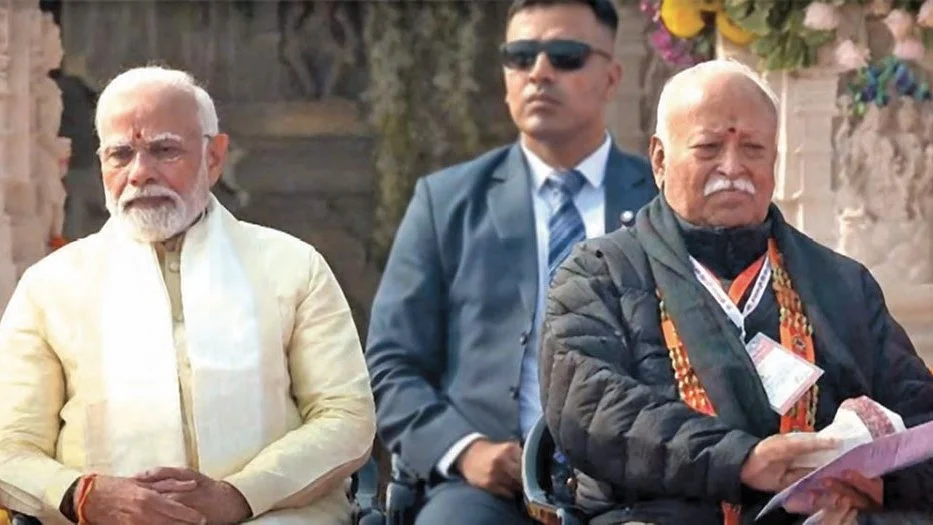Two years ago, the Modi–Shah duo dropped both minister of road transport Nitin Gadkari and chief minister Shivraj Singh Chouhan from the BJP parliamentary board, the party’s apex decision-making body (at least on paper). They also dropped UP chief minister Yogi Adityanath from the BJP central election committee. This was a clear demonstration of power and authority because all three— Gadkari, Chouhan and Yogi—were considered pivotal members of the party organisation.
Each had their own strong support base and had been key players in the party. All three are also known to be close to the RSS. This cutting down to size was a signal to the RSS that it would be permitted to play only a limited role in the party apparatus.

The RSS did not take kindly to Gadkari’s exclusion from the apex body. Nor were they happy with the sidelining of former Rajasthan chief minister Vasundhara Raje Scindia whose mother Vijaya Raje Scindia had played a stellar role in building up the Jana Sangh, the BJP’s predecessor. Given that Gadkari and Raje were not averse to expressing their reservations in public forums about the lack of intra-party democracy under the present regime, the message Modi wanted to send out was loud and clear—he would not brook any criticism.
Historian Ramachandra Guha recently emphasised that the cult of Modi has outdone all previous personality cults; anyone who opposed his will would not be tolerated, not even his alma mater. Modi has made no bones about being g.
















